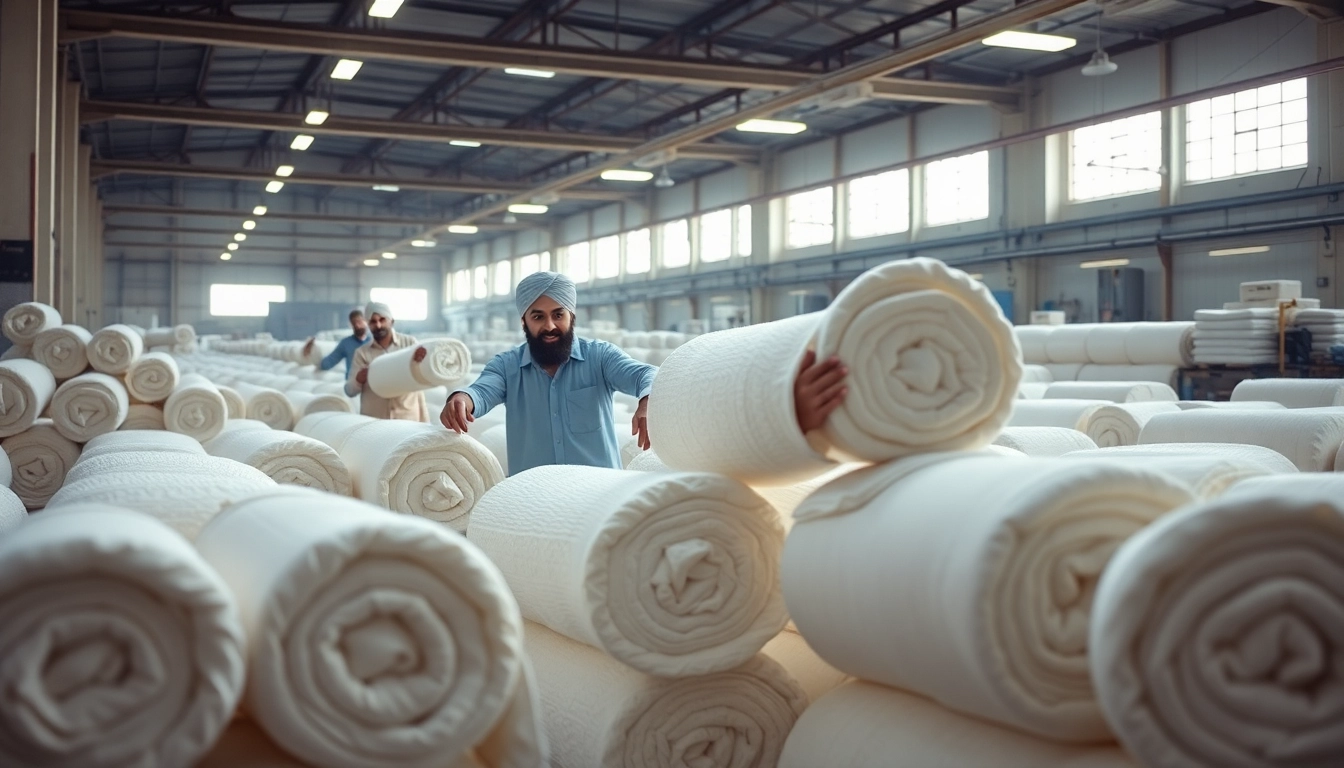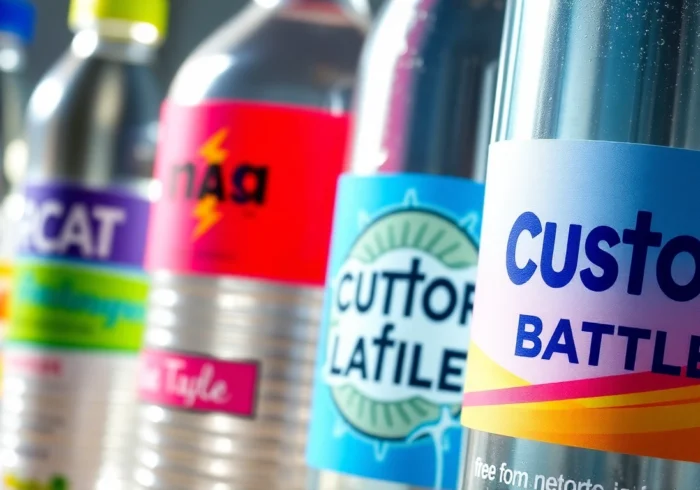Understanding the Pakistani Towel Manufacturing Industry
The towel industry in Pakistan has established itself as a significant player in the global textile market, renowned for producing high-quality, cost-effective products. With a rich history dating back decades, Pakistani towel manufacturers have developed advanced manufacturing capabilities and fostered a robust export-oriented sector. For international buyers and retailers seeking reliable supply chains, a towel factory Pakistan offers an attractive combination of quality, compliance, and affordability.
Overview of towel factory Pakistan and key players
The landscape of towel manufacturing in Pakistan is diverse, comprising both well-established giants and innovative small-to-medium enterprises. Prominent companies like Tulip Towel Industries, Imperial Towel Industries, Rustam Towel, and Patel Towel Industries have built a reputation for their quality standards and international export capabilities. The Towel Manufacturers Association of Pakistan (TMA) plays a pivotal role in uniting these entities, promoting their products globally and ensuring compliance with international standards.
Market trends and export opportunities
The global demand for plush, durable, and eco-friendly towels continues to rise, particularly in markets emphasizing sustainability and premium quality. Pakistani towel exporters are capitalizing on these trends by investing in innovative fabrics and manufacturing processes. The country’s strategic geographic location facilitates access to international shipping routes, making it an advantageous hub for bulk exports. Notably, Pakistan is among the top towel exporters in South Asia, with a steady increase in export volume and diversification of product lines.
Regulatory standards and quality assurance in Pakistan
Pakistani towel manufacturers adhere to rigorous national and international quality standards, including ISO certifications, environmental regulations, and safety protocols. Many factories operate under stringent quality control (QC) processes involving raw material inspection, in-process testing, and final product verification. This focus on quality assurance ensures that exported towels meet demanding specifications for softness, absorbency, durability, and aesthetic appeal, fostering trust with global buyers and retailers.
How to Choose the Right Towel Factory in Pakistan
Factors to consider: quality, sustainability, certifications
Selecting a reliable towel manufacturer requires careful evaluation of several essential factors. First and foremost, quality is paramount. Verify the factory’s adherence to international standards through certifications like ISO, OEKO-TEX, or GOTS. Sustainability practices are increasingly vital, as eco-conscious buyers seek environmentally responsible products. Look for factories using sustainable raw materials and eco-friendly dyes, which not only reduce environmental impact but also appeal to a broader consumer base.
Evaluating factory capacity and production timelines
Operational capacity and efficiency directly influence your ability to meet market demands. Assess the factory’s production volume, machinery, and workforce capabilities. Transparent communication about lead times, order processing, and logistics ensures reliable delivery schedules. Long-term partnerships benefit from factories that have established scalable processes and can adapt to bulk or customized orders with consistent quality and on-time delivery.
Building reliable partnerships with Pakistani towel manufacturers
Effective collaboration hinges on clear communication, quality transparency, and mutual understanding. Visiting the factory or engaging with trusted third-party inspection agencies can validate claims about production practices. Developing a mutually beneficial relationship might involve negotiated pricing, shared quality benchmarks, and flexible payment terms. Such partnerships foster trust, facilitate product innovation, and create a seamless supply chain, especially vital for brands aiming for exclusivity or private label branding.
Manufacturing Techniques and Materials in Pakistan
Common fabrics and eco-friendly options used
Pakistan excels in producing a wide array of towel fabrics, including terry cloth, velour, waffle, and flat-woven styles. Recent industry shifts emphasize eco-friendly materials such as organic cotton, bamboo fibers, and recycled textiles. These sustainable options meet the rising global demand for environmentally responsible products and foster brand differentiation.
Innovations in towel production: softness, durability, and design
Advanced manufacturing techniques have enhanced the quality of Pakistani towels significantly. Technologies like advanced he Fiberfinishing and mercerization impart superior softness and luster. Innovative dyeing methods allow for vibrant, long-lasting colors, while specialized weaving techniques enhance durability and absorbency. Recent focus on design trends, including custom embroidery and jacquard patterns, caters to premium market segments.
Quality control processes for export-ready towels
Quality assurance involves multiple stages, from raw material inspection to final product testing. Pakistani factories utilize modern QC labs to conduct tests on tensile strength, color fastness, absorbency, and pilling resistance. Certification processes and third-party audits further boost export credibility, ensuring that towels consistently meet clients’ specifications and international standards.
Benefits of Partnering with a Towel Factory in Pakistan
Cost advantages and competitive pricing
One of the key reasons global buyers turn to Pakistan for towel manufacturing is the cost advantage. Lower labor and raw material costs enable Pakistani factories to offer competitive pricing without compromising quality. This cost-effectiveness allows brands to maximize margins and price their products competitively in diverse markets.
Customization, branding, and private label solutions
Pakistani towel factories are adept at providing customization options, including size, color, branding, and specific design features. Private label solutions enable retailers and brands to create unique product lines, thereby strengthening brand identity and customer loyalty. Many factories also offer packaging, tag printing, and logo embroidery services, streamlining the supply chain for international clients.
Domestic and international logistics considerations
Efficient logistics are crucial for timely market entry. Pakistani factories often have established partnerships with local shipping companies to facilitate exports via sea and air freight. They are experienced in handling export documentation, customs clearance, and freight negotiations. Working with a trusted factory reduces logistical challenges and ensures smoother delivery to international markets.
Steps to Establish Your Towel Business with a Pakistan Towel Factory
Import procedures and legal requirements
Entering the Pakistani towel manufacturing industry involves understanding import regulations, customs duties, and compliance standards. Partnering with a knowledgeable Pakistani factory simplifies this process, as they often assist with documentation such as trade licenses, certificates of origin, and customs declarations, making the import process seamless.
Sample procurement and product verification
Before placing bulk orders, requesting samples is essential to verify fabric quality, craftsmanship, and adherence to specifications. Many factories provide sample development at minimal or no cost, allowing buyers to evaluate their suitability. Once satisfied, establishing quality agreements and inspection protocols ensures consistency and minimizes risks.
Building long-term, sustainable supply chains in Pakistan
Long-term success depends on cultivating mutually beneficial relationships. Regular communication, quality audits, and timely payments foster trust. Developing local partnerships with logistics providers, inspectors, and industry associations can streamline operations. Additionally, engaging in ongoing capacity-building initiatives can help your supply chain evolve with market demands.



